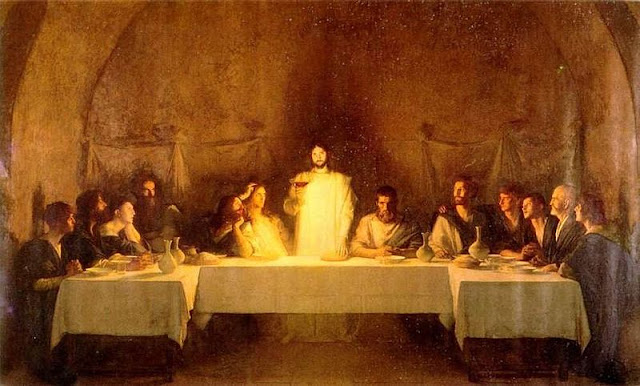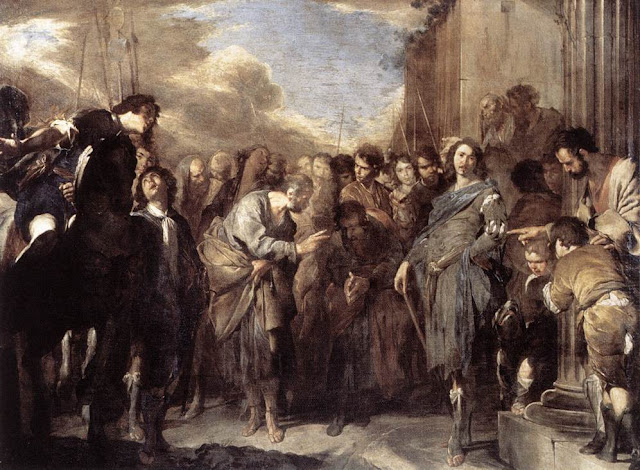Reassurance for Troubled Hearts, part 1 (preaching resource for 5/7/23, Easter 5)

This post exegetes John 14:1-15, the RCL Gospel reading for 5/7/23. This exegesis draws on various sources, including "The Bible Expository Commentary" (Warren Wiersbe), "The New Bible Commentary," "The Parable of Joy" (Michael Card), and "The Gospel of John" (F.F. Bruce). "Last Supper" by Bouveret (public domain via Wikimedia Commons) Introduction We begin with the last verse of John chapter 13: 13:36 Simon Peter asked him, "Lord, where are you going?" Jesus replied, "Where I am going, you cannot follow now, but you will follow later." 37 Peter asked, "Lord, why can't I follow you now? I will lay down my life for you." 38 Then Jesus answered, "Will you really lay down your life for me? I tell you the truth, before the rooster crows, you will disown me three times! 14:1 "Do not let your hearts be troubled. Trust in God; trust also in me. John chapter 14 continues Jesus’ Maundy Thursday even...


_-_James_Tissot.jpg)

